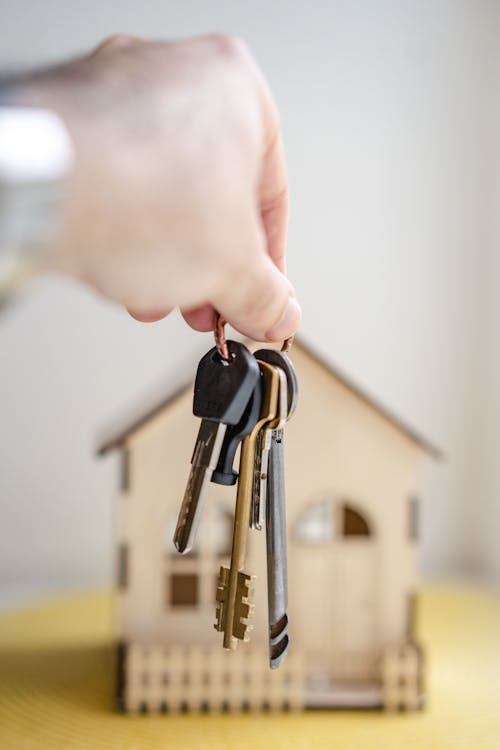Tips For Property Investments in Thailand
The rental yields for property investments in Thailand are quite high. On average, they are over 5%. In some places, they may even be higher. Listed below are some tips to invest in property in Thailand. Investing in Thailand property means a lot of potential for profit! But how do you go about it? How do you do due diligence? And, what about taxes and fees? Do you really know what you're doing?
Due Diligence in Thailand
Doing Due Diligence before investing in a property is an important part of buying property in Thailand. The process involves researching all aspects of a property. It starts before you even sign a contract or pay for the property. A company such as Globe Evolution, for example, will do an initial examination of the property's title deed, including whether it's connected to a public road, how far away it is from the public road, and its boundaries.
In Thailand, there are numerous legal issues that arise in acquiring property. Immovable property in Thailand is no different. It is vital to ensure that the property is legally owned by someone who will be able to pay for it. In addition to investigating the ownership of the property, due diligence involves checking that the developer is a Thai national. The Thai government has strict laws on property transactions, so buyers should make sure the developer follows them.
Title Deeds in Thailand
In Thailand, there are six types of Title Deeds. Of these, four are relevant to foreigners, such as the Sor Por Kor 4-01 and Sor Kor Nung. The former is the strongest type of title deed because it specifies the size and boundaries of the land, making it the most secure type of land title. The latter is best for investors looking to develop their property portfolio and establish a Thai real estate business.
Depending on the type of land title deed, a Nor Sor 3 or a Nor Sor 4 can be issued. This title deed is used to notify others of a land owner's rights and permits the tenant to upgrade to Nor Sor 3. The holder of the Nor Sor 3 title deed has the right to use the land, and it can be used as mortgage collateral. The Title Deed can also serve as proof of ownership in case of a dispute between two people.
Lease Agreements in Thailand
A lease agreement in Thailand is a contract that grants you temporary lease rights over the property. You do not acquire full ownership of the property and can only use it for 30 years. But, a Thai judge can interpret a lease agreement over 30 years as a tacky attempt to transfer full ownership to the lessee. Hence, you should seek the help of a legal advisor. Make sure that your lease agreement contains clauses that are beneficial to your heirs.
Thai law requires all lease agreements to be registered with the Land Department. If you intend to use the property for more than three years, you must register the lease contract with the Land Department. The civil and commercial code of Thailand requires that you register your lease agreement within three years of the date of its signing or commencement. Land Departments also require that your lease contract be written in Thai. It will include the name of the property owner, lessee, length of the lease, price, and any other contacts with respect to the property.
Thai Property Taxes
When purchasing a property in Thailand, you need to know what Thai Property Taxes are before you sign any paperwork. The price of your property will be determined by the value of the property, as well as how much you owe on it. There are several taxes that you may need to pay. These taxes are paid by both the buyer and seller of the property. The amount of transfer fees is usually split fifty percent between the buyer and seller.
For individual property owners, the business tax is 3% of the sale or appraised value. Ten percent of this tax goes to the local government. Generally, this tax is paid by the seller of the property. However, you may be exempt from the business tax if you've owned the property for at least 5 years, or if you plan to pass it on to an heir or government agency. In the case of rental gains, you will also be charged the principal maintenance tax.
Hire a Property Lawyer
Before investing in property in Thailand, it is best to hire a property lawyer to help you with the legal process. While the Thai real estate market is far more exciting than the West, there are also more legal pitfalls involved. Hiring a property lawyer will help you avoid such problems and avoid losing your money. You may also want to hire a property lawyer to help with due diligence. It can be very costly to hire a law firm in Thailand, so you may wish to avoid it if you can.
Moreover, a good property lawyer will be familiar with the land acquisition process. Depending on the laws and regulations, there are numerous ways in which you can lose money in property investments in Thailand. In Thailand, you may find that there are problems with a property before you purchase it. If you haven't hired a property lawyer before, then you will probably lose money in the end. However, a lawyer can help you avoid these problems by performing due diligence and keeping you updated with any new laws and regulations that may impact your property.

